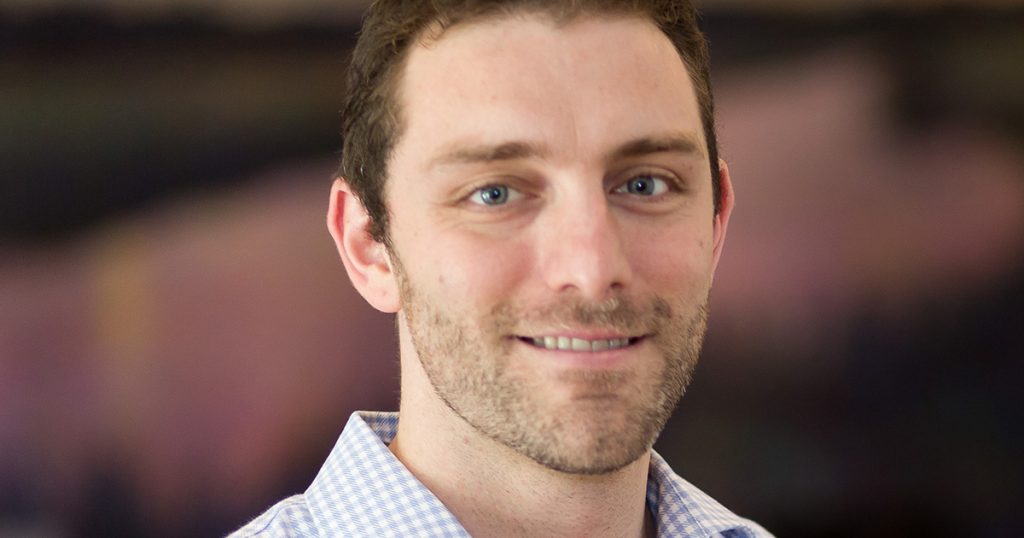Meet Pete Cronin, Our new executive director of AI commercialization

By Robyn Cox
In 2018 St. Michael’s Hospital launched a forecasting tool using a machine learning algorithm that can predict the number of patients that will visit the hospital’s emergency department (ED) with an accuracy that is well over 90 per cent. This helps the ED team plan for how many patients will be visiting so they can create a better care experience for them.
Now the forecasting tool is up and running in other GTA hospitals – but how do we share it more broadly so it can help EDs nationally – and even globally? That’s where Pete Cronin comes in. The new executive director of AI commercialization, who joined Unity Health earlier this year, is in charge of creating and implementing a commercialization strategy for the AI solutions built by our Data Science and Advanced Analytics (DSAA) program.
We caught up with Pete to learn more about his background in healthcare technology and how that will help Unity Health transform the care experience through AI solutions – in Canada and around the world.
Tell us a bit about your background in healthcare technology.
For the first 5 years of my career I worked at Telus – a significant part of that at Telus Health. I focused on partnerships and launching some of the consumer health products they had created. After that, I shifted to another part of Telus where I was focused on how can we could grow their user base, differentiate them in the market and be more customer-focused.
Afterwards, I did my MBA at Cornell.
For the past 6 years I’ve been working in consulting – focused on digital transformation, automation, and digitalization. The last couple of years I’ve been more focused on working with smaller companies and helping them go to market with their healthcare technology products.
What lens do you bring to AI commercialization based on your previous experience?
The perspective I often bring to my work is that there are common things that make you successful when communicating what a product does and designing a product that is user-centric – whether it’s for a clinician in a hospital, a patient in a hospital or someone in a very different industry.
Sometimes the key users and the key influencers – or decision-makers – are different. It’s important to think about both and make sure you’re clearly communicating to both.
As an example, the Emergency Department forecasting tool – for the user you want it to be accurate, timely and to help them make decisions on the ground. For the person deciding to bring it in – you want to show them how it helps them to allocate their resources and meet or improve the quality indicators they measure and report on.
What is one of the key strategies you are going to apply from your previous experience?
Well, a lot of it is building on what the DSAA program and Unity Health already does very well – creating applied AI solutions that solve real-world problems.
Something that I’m going to try to do is bring an outside-in orientation to development. So, as we’re creating products for clinicians at Unity Health, it’s also an opportunity for us to think about who the similar customers might be at other hospitals. It doesn’t change what the team is doing, but it helps us think through the key universal problems that every hospital is going to want to solve.
What are your initial impressions of Unity Health?
One of the things that I love is how oriented everyone at Unity Health is around a common purpose. The patient outcomes piece is always number one. That patient-first mentality is a huge part of this culture.
Secondly, and maybe this is the research background, when we say that we are delivering impact we mean it and we can back it up with data.
What is your biggest hope for AI commercialization at Unity Health in the next year?
I hope we’ve found one or two priority AI solutions and we’ve gone to market with them and are already starting to learn from that experience. By doing this, we will also accomplish our goal to increase the reach and the positive impact that our solutions are making on patient outcomes and hospital operations.
I also want to increase that outside-in orientation within our internal model for developing new products – not to change what we would prioritize – but to make it an easier lift when we think about scaling it across hospitals.
And where would you like to see AI commercialization at Unity Health in five years?
The vision is for Unity Health to be synonymous with global digital health leadership. We will be known for improving the hospital experience for both patients and providers with our solutions.
We will be able to reference a number of highly successful ventures that have come out of the DSAA program. It will be seen as a place where employees can work on groundbreaking ideas and collaborate with other leaders in the space.
It’s bold but from everything I’ve seen so far we have a good foundation to achieve this goal and I’m excited for it.
